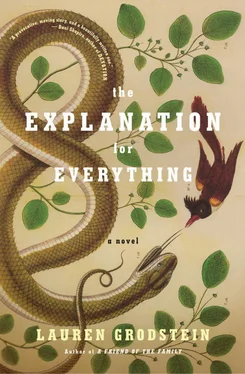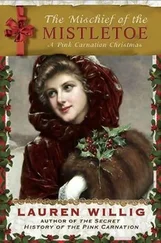“Mister! Hey, Mister!” Was someone calling him? He paid no mind. “Mister! Hey you!” He stopped, he looked. Nobody was there. He kept walking.
What was he expecting from this visit except gravity? That’s all he wanted: to have the gravity he needed to walk into that small, windowless hearing room tomorrow, face the three members of the parole board, refreshed and reanimated by the sight of the very location where Oliver McGee had killed his wife. He would have gravity. He would be grave. He would read the statement he’d prepared with a serious face and steady hands. Here it was, the intersection he hadn’t visited in the seven years since she’d been killed. The rain started falling in that ominous Florida way as Andy walked along the side of the road, the only pedestrian in a square mile, toward McDonald’s.
“Mister! Hey!” A woman’s voice.
Cars flew back and forth across the intersection. More cars lined up outside the drive-thru. Here, under that streetlight. Oliver had slammed into her at fifty miles an hour and forced her car through the intersection, where it spun and ricocheted into the side of the Steak ’n Shake and then back out into the street. Like in an action movie. Like in a horror movie. Parts of Lou’s skull forced through the windshield. What was left of her forced back into her seat. She didn’t have an air bag. It had been an ancient car.
There was no plaque to mark what had happened, no memorial like those tattered teddy bears you sometimes saw along highways. People lined up in their cars to buy their Big Macs and chicken nuggets. The Steak ’n Shake was open too. Rachel had loved their milkshakes, he’d forgotten that. She used to pronounce strawberry “staw-verry.”
And if he was going to continue to tour this haunted museum then why not get back in the car and drive two miles west and two south until he arrived at Quail Run? Now the rain was clearing, because that’s what rain did in Florida, come fast and hard and retreat like a coward; now the skies were opening gentle and blue. Quail Run had gotten a face-lift, a new sign with navy lettering and gold trim. The parking lot too had been newly paved, and Andy tried not to feel his heart’s lunatic pounding as he pulled into a spot, his old spot, right next to Lou’s, and got out of the car. The balcony of 13C that looked out over the parking lot: there was a small grill, a Weber, nicer than the one he and Lou used to have. A kid’s tricycle. She was there. Was she still there? Was she watching him?
This thought surprised him.
“Mister!”
That voice again, only now there was a body to match it: a woman in her sixties in a blue flowered dress, getting out of her car. He knew her. “That’s a reserved spot,” she said.
She saw his face and her own went pale. “Oh Jesus. Andy.”
“Joyce,” he said, wondering how he had heard her voice all day—for now that he heard it, he was sure.
“What are you doing here?” she asked.
“Nothing,” Andy said. “Visiting.”
Like his own mother, she had grown old in a short span of time. He remembered her as a lean tan woman with a shaggy haircut, cold blue eyes, smoker’s lines around her mouth. Now she wore this dress that an old woman would wear, and her hair was tied up behind her head. Orthopedic shoes. “You came down for the hearing?”
Andy nodded. He knew very little about Joyce McGee; when they were neighbors, they were barely even neighborly. There was a Christmas party in the complex’s garden every year, but the McGees never went, nor did they open their door to trick-or-treaters. She was never by the pool, like Oliver often was. The television in that end-unit town house was always blasting.
He knew that she managed a salon near the Miami campus. He knew she worked late hours, and that she kept trying to get Oliver a job there, sweeping up, washing hair.
Oliver. When he was sentenced she kept crying his name, softly, behind an oversized wad of Kleenex. Oliver: maybe her dreams for him were in that very name, three syllables, a good man’s name. She had wanted her son to be an artist or some kind of thinker, with a name like that—an intellectual-property lawyer, a translator at the UN. Andy wondered if he’d been teased growing up, a fancy-pants name in a classroom full of Johnnys and Lupes and Juans. Oliver McGee. Joyce was still standing there, her keys dumbly in her hand.
“How’s your mother?” he asked.
“She died last year,” Joyce McGee said. She closed the door to her car. “Pancreatic cancer.”
“I’m sorry,” Andy said.
Joyce nodded. She didn’t seem to be able to leave—was she afraid he’d smash her car or scream at her across the lot?—but she didn’t have anything to say. She’d come to Lou’s funeral, sat in the back of the funeral home, by herself. She’d had the courtesy not to cry, as far as Andy could see, or to say anything to anyone after. She did, however, sign the guest book: Joyce Marie McGee in a schoolteacher hand.
“How’s Oliver doing?”
“He got his college degree,” Joyce said, then looked abashed, like she shouldn’t be bragging. “Do you want to see your old apartment? I know who lives there. I’m sure they’d let you in.”
“I don’t want to see it,” Andy said.
“Why are you here, then? Are you here to see me?”
“I’m just here,” Andy said.
Joyce nodded. Had there ever been a Mr. McGee? What had happened to him? Andy had no idea.
“And your girls?” she asked. “How are they?”
“They’re fine,” he said. “They’re doing very well,” he added, then wished he hadn’t, because he didn’t want her to know they were doing well. As far as he was concerned, he wanted her to think, forever, that his girls were the stricken babies in their matching yellow dresses at their mother’s funeral. He wanted to think that they were motherless and suffering.
“I’m glad,” she said. “Andy—” she started. She loosened her grip on her keys, closed the car door, walked around to where he was standing next to his rental car. His old parking space.
“Andy,” she said again, a few feet from him now, so that he could smell her smell of cigarettes and hair spray. She wasn’t wearing a blue flowered dress, just a blue flowered smock over a T-shirt and a skirt. This made him feel better; she wasn’t elderly, she just worked in a hair salon. Fine. He didn’t need to pity her. “Andy, look—”
“Yes?”
She bit the corner of a nail.
“What is it?”
“Look, I have no right to ask you this, I know, and I—I really don’t know how even to begin—”
He remembered himself four years ago, the first parole hearing, his own trembling.
“Andy, I know you’re here for the hearing tomorrow and I know I have no right but if you would just consider—if you would just consider—”
She bit a corner of a different nail while he stared.
“He was just a boy, Andy, when it happened. When he was sentenced.” She realized she was chewing on her nails and stopped. “If he gets out now he could still have some kind of life.”
“What do you want me to consider?”
“What happened to your wife will never be undone, Andy. No matter how long my son is in jail, no matter how guilty he feels, everybody feels, no matter how much we hurt for the rest of our lives we cannot bring back your wife, and my son sitting in jail will not bring back your wife.”
He didn’t say anything, but he could feel the anger coming on.
“He got his degree in industrial drawing, Andy. He’s a real good—he’s always been a talented artist and he wants to work at a factory somewhere, designing, I don’t know. He’s the first member of our family to get a college degree, you know that? You’re a college professor, right? It’s an accomplishment.”
Читать дальше












